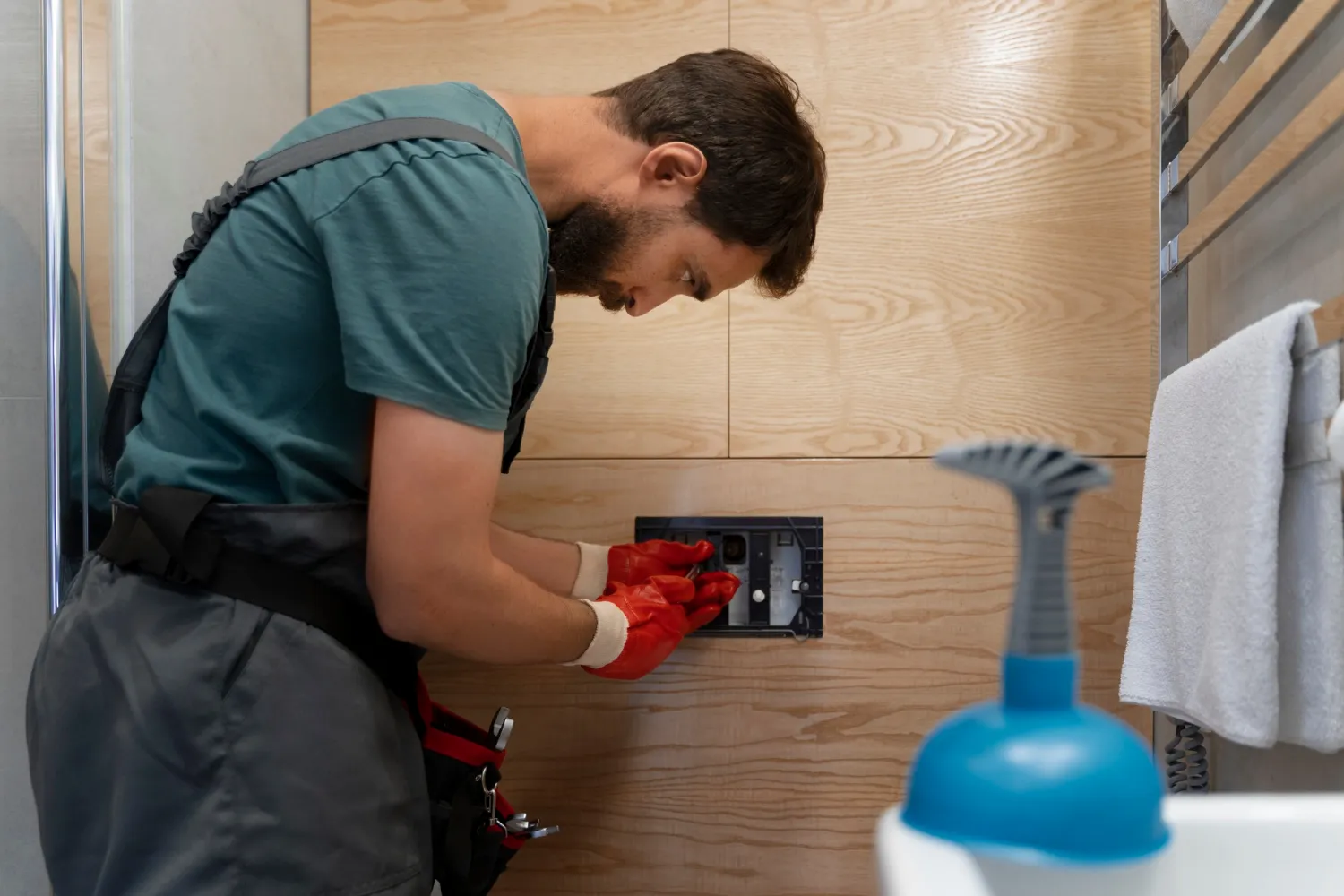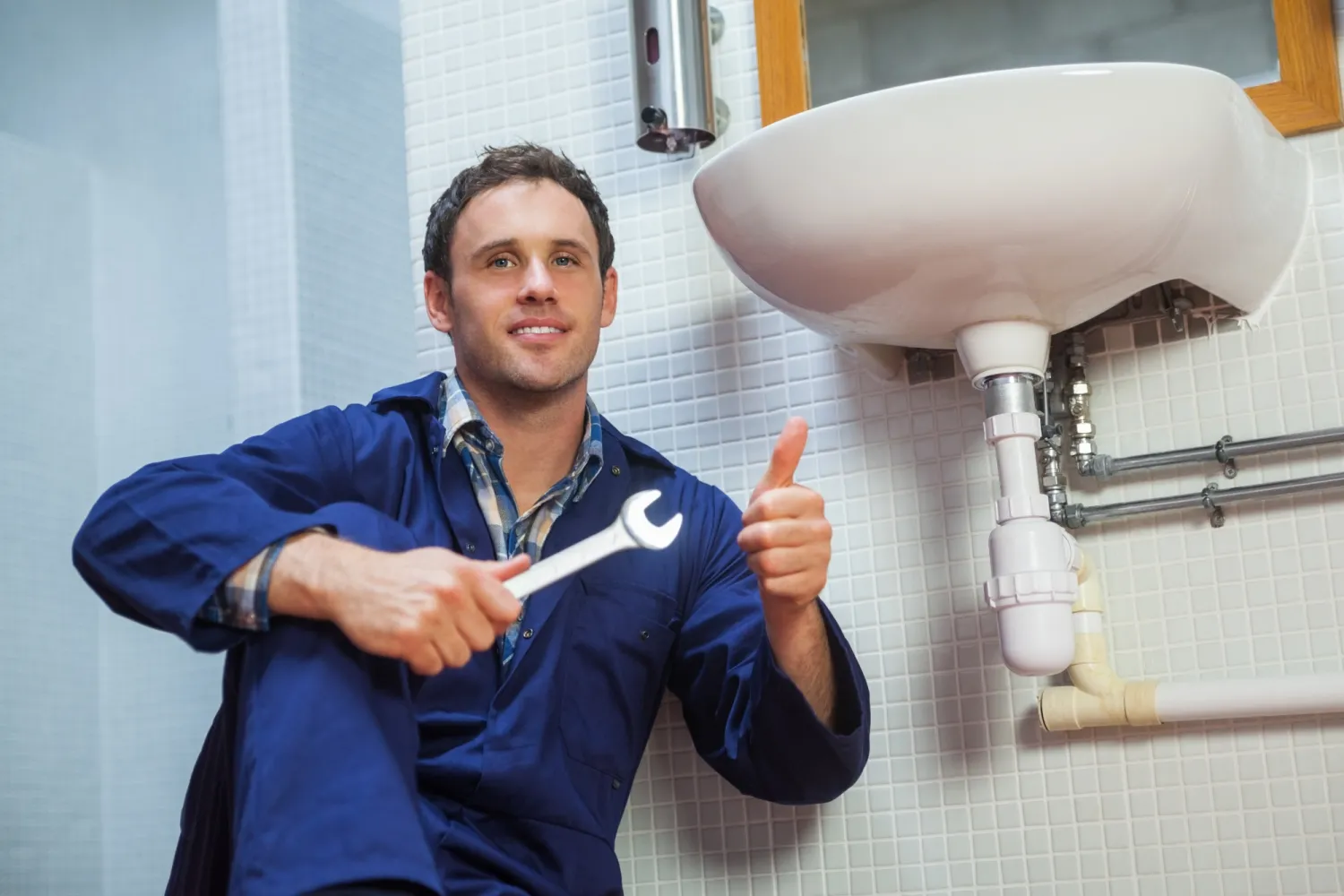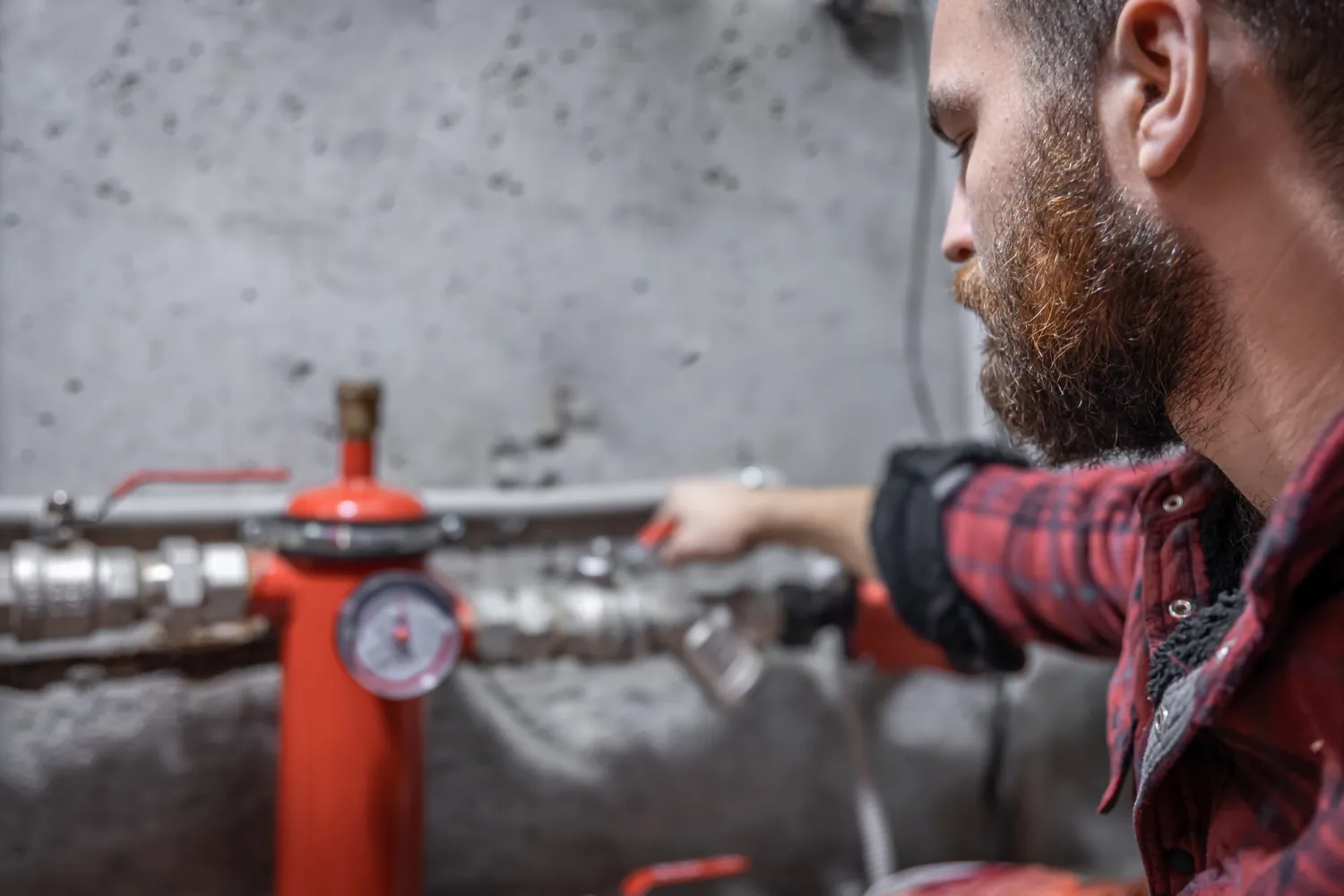
Blog
The Essential Guide to Plumbing Maintenance Plans: Protect Your Home and Save Money

Plumbing issues can strike when you least expect them, leading to costly repairs and significant stress. That’s why plumbing maintenance plans are more than just an amenity—they’re a smart investment in the long-term health of your home or property.
In this guide, we’ll explore how these plans work, the benefits they offer, and how they can save you money while keeping your plumbing system in peak condition.
1. What is a Plumbing Maintenance Plan?
A plumbing maintenance plan is your go-to solution for keeping your property’s plumbing in excellent shape. Whether you’re a homeowner or a landlord, these plans will help you avoid costly repairs and maintain peace of mind.
The Key Features of a Plumbing Maintenance Plan:
- Regular Inspections: Scheduled annual or bi-annual check-ups by professional plumbers to assess vital components like pipes, water heaters, and drains. Early detection prevents small issues from becoming expensive problems.
- Priority Service: As a member of a plumbing maintenance plan, you receive faster response times for emergency plumbing issues, ensuring that you’re prioritized over non-members when urgent repairs are needed.
- Expert Advice: Access to professional guidance on maintaining your plumbing system between visits, helping you extend the lifespan of your equipment.
Types of Plans:
- Basic Plans: Cover essential services like inspections and minor repairs.
- Comprehensive Plans: Include advanced features such as leak detection, drain cleaning, and even 24/7 emergency support. To see how a tailored plan can work for you, check out our service plans.
Now that you understand what a plumbing maintenance plan entails, let's delve into the specific benefits these plans offer to protect your property and save you money.

2. The Benefits of a Plumbing Preventative Maintenance Plan
A plumbing preventative maintenance plan isn’t just about avoiding emergencies; it’s about proactively protecting your property and ensuring long-term efficiency.
The Key Benefits
- Prevent Small Issues from Escalating: Regular inspections catch minor problems, like small leaks or low water pressure, before they develop into major, costly repairs. Early detection helps prevent damage to walls, floors, and even your electrical system.
- Improved Plumbing Performance: Routine maintenance ensures that your plumbing system operates smoothly, reducing the risk of clogs, leaks, or system breakdowns. This leads to fewer disruptions and a more efficient system overall.
- Extended Lifespan of Equipment: Regular servicing, especially for water heaters, helps prolong the life of your plumbing fixtures and appliances. Flushing the water heater and checking for sediment build-up can prevent unexpected failures, saving you the cost of premature replacement.
- Cost Savings: Preventative care reduces the likelihood of expensive emergency repairs. Additionally, many maintenance plans include discounts on services, repairs, and parts, making it a cost-effective option in the long run.
- Peace of Mind: With regular check-ups and professional oversight, you can rest easy knowing your plumbing system is well-maintained, reducing the stress of unexpected plumbing failures.
Beyond immediate savings and peace of mind, plumbing maintenance programs play a crucial role in preserving the long-term value of your property.
3. How a Plumbing Maintenance Program Protects Property Value and Prevents Damage
Ways a Plumbing Maintenance Program Protects Property:
- Preserving Property Value: Regular maintenance prevents structural damage caused by leaks, burst pipes, and water damage, which can significantly reduce the value of your property. By keeping your plumbing system in top condition, you help maintain the overall integrity and value of your home or rental property.
- Preventing Costly Damages: Early detection of issues like hidden leaks, corroded pipes, and failing water heaters can prevent extensive water damage, mould growth, and even electrical hazards. By addressing potential plumbing issues early, regular maintenance prevents the kind of damage—like leaks and water intrusion—that can lead to costly repairs and reduce your property’s market value over time.
- Enhancing Energy Efficiency: Regular maintenance can also improve the efficiency of your plumbing system, particularly your water heater. An efficient system not only reduces energy costs but also lessens wear and tear on equipment, further preserving property value.
In addition to protecting your property, a well-maintained plumbing system can have significant implications for your insurance coverage.

4. Plumbing Maintenance and Insurance
A plumbing maintenance program doesn’t just protect your property; it can also play a crucial role in your insurance coverage, providing both financial and practical benefits.
How a Plumbing Maintenance Program Can Benefit Your Insurance:
- Reducing the Risk of Insurance Claims: Regular maintenance helps prevent significant issues like leaks, burst pipes, and water damage, all of which can lead to costly insurance claims. By keeping your plumbing system in good condition, you reduce the likelihood of needing to file a claim, which can also help keep your premiums low.
- Favourable Insurance Rates: Insurance companies often look favourably upon well-maintained properties. A proactive plumbing maintenance program demonstrates responsibility and reduces risk, potentially leading to more favourable insurance rates. Some insurers may even offer discounts for properties enrolled in regular maintenance programs, as it reduces the chances of major incidents.
- Complementing Home Warranties: A plumbing maintenance program can work hand-in-hand with a home warranty. While home warranties cover repairs and replacements due to normal wear and tear, a maintenance program focuses on preventing these issues from arising in the first place. Together, they offer comprehensive protection, reducing both out-of-pocket expenses and the likelihood of extensive damage.
- Documenting Maintenance for Insurance Purposes: Keeping detailed records of all maintenance work can be invaluable for insurance purposes. In the event of a claim, having proof that your plumbing system was regularly serviced can help expedite the process and validate your claim, ensuring that you receive the coverage you’re entitled to.
To truly reap the benefits of a maintenance plan, it's important to understand the comprehensive services that a robust program should include.
5. The Key Components of a Comprehensive Plumbing Maintenance Plan
A comprehensive plumbing maintenance program offers more than just basic upkeep; it includes a range of services designed to keep your entire plumbing system functioning efficiently and to address issues before they become costly problems.
Core Elements of a Comprehensive Plan:
- Advanced Leak Detection: While regular inspections are essential, a comprehensive plan often includes advanced leak detection methods, such as using specialized equipment to identify hidden leaks behind walls or underground. This proactive approach helps prevent water damage that might not be visible during routine checks.
- Water Quality Testing: Beyond just maintaining your plumbing system, a comprehensive program might include regular testing of your water quality. This can detect issues like hard water, high mineral content, or contamination, which can affect both your health and the longevity of your plumbing fixtures.
- Sewer and Drain Line Camera Inspections: Regular drain cleaning is beneficial, but a comprehensive plan goes further by including camera inspections of your sewer and drain lines. This technology allows plumbers to pinpoint blockages, tree root intrusions, or pipe deterioration that can cause serious problems if left untreated.
- Winterization Services: For properties in colder climates, a comprehensive plumbing maintenance program may include winterization services. This involves preparing your plumbing system for freezing temperatures, such as insulating pipes and draining outdoor faucets, to prevent costly burst pipes during winter.
- Comprehensive System Audits: In addition to regular check-ups, some plans offer full-system audits that assess the overall efficiency and health of your plumbing system. This can include reviewing water pressure, checking for energy inefficiencies, and ensuring all components work together optimally.
- Detailed Maintenance Reports: After each service, comprehensive plans often provide detailed reports that document the condition of your plumbing system, any work performed, and recommendations for future maintenance. These reports are invaluable for both maintaining your system and providing proof of upkeep for insurance purposes.
6. How to Choose the Right Plumbing Maintenance Plan FOR YOU
Selecting the right plumbing maintenance plan is crucial to ensuring your property’s plumbing system remains in top condition. Here’s how to make the best choice:
- Assess Your Property’s Needs: Consider the age and condition of your plumbing system. Older systems or those with a history of issues may benefit from a more comprehensive plan, while newer systems might only need basic coverage.
- Compare Plan Features: Look for plans that offer the services most relevant to your situation, such as advanced leak detection, water heater maintenance, or sewer line inspections. Ensure the plan you choose covers the essential components of your system and any specific needs you might have, like winterization services.
- Understand the Fine Print: Carefully review the terms and conditions of each plan. Pay attention to what’s included, any exclusions, and the frequency of services offered. This will help you avoid unexpected costs and ensure that the plan aligns with your expectations.
- Consider Cost vs. Benefit: Weigh the annual cost of the plan against the potential savings from avoiding major repairs. A slightly higher upfront cost might be worth it if the plan includes extensive coverage and proactive maintenance services.
- Check for Customization Options: Some providers offer tailored maintenance schedules or additional services that can be added based on your specific needs. Opt for a plan that offers flexibility and the ability to adjust as your property’s requirements change.
While the benefits of plumbing maintenance plans are clear, several misconceptions persist. Let’s debunk some of the most common myths.

7. Common Myths About Plumbing Maintenance Plans
Plumbing maintenance plans are often misunderstood, leading to misconceptions that might prevent property owners from taking full advantage of their benefits. Let’s debunk some of the most common myths:
- Myth 1: They Are Not Worth the Cost: Some believe that plumbing maintenance plans are an unnecessary expense. However, these plans often pay for themselves by preventing costly emergency repairs and providing discounts on services. The long-term savings and peace of mind they offer make them a valuable investment.
- Myth 2: Only Old Properties Need Them: It’s a common misconception that newer homes don’t need maintenance plans. In reality, even new plumbing systems can develop issues, and regular maintenance ensures that any potential problems are caught early, extending the life of the system.
- Myth 3: All Plans Are the Same: Not all plumbing maintenance plans are created equal. Some offer basic coverage, while others include comprehensive services like advanced leak detection and water quality testing. It’s important to choose a plan that meets your specific needs rather than assuming they all provide the same level of service.
Final Words
Investing in plumbing maintenance plans is a proactive step that pays off in more ways than one. From preventing costly repairs and preserving property value to enhancing your insurance coverage, these plans offer peace of mind and financial protection. Don’t wait for a plumbing emergency to disrupt your life—take control today. Contact us to learn more about our tailored maintenance plans and ensure your plumbing system is ready for whatever comes next.
Whether you're installing, repairing, or servicing your radiant floor heating system in San Francisco contact Ros Plumbing today.
